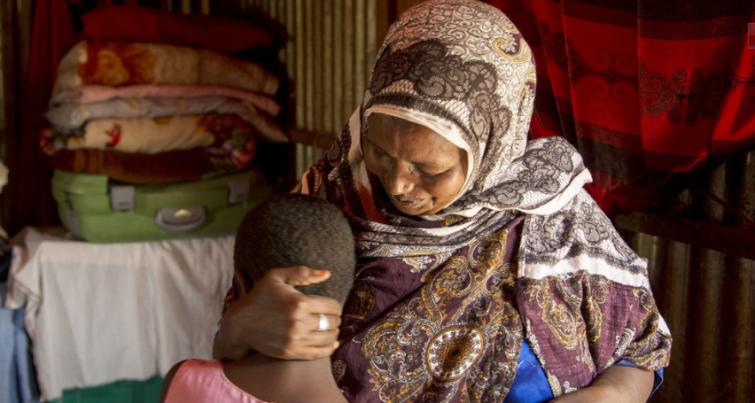
With millions of girls ‘at risk’ today of genital mutilation, UN chief calls for zero tolerance
New York, Feb 7 (IBNS): Female genital mutilation, is “an abhorrent human rights violation” still affecting women and girls around the globe, UN Secretary-General Antonio Guterres stated in his message for the International Day of Zero Tolerance for FGM, marked on Wednesday.
“It denies them their dignity, endangers their health and causes needless pain and suffering, even death”, the UN chief added.
FGM - sometimes called female circumcision - involves the partial or total removal of the external female genitalia for no medical reason, and results in severe physical and mental health consequences for girls and women.
According to Guterres, it “is rooted in gender inequalities and power imbalances – and it sustains them by limiting opportunities for girls and women to realize their rights and full potential”.
In cultures that condone FGM, it is usually performed by a traditional practitioner with crude instruments and without anesthetic.
“An estimated 200 million women and girls alive today have been subject to this harmful practice” the UN chief said, “and every year, almost four million girls are at risk”.
About 80 per cent of women and girls who have undergone the procedure have had their clitoris and labia minora removed. Complications include severe pain, hemorrhaging, sepsis, urethra damage, painful sexual intercourse and other sexual dysfunction.
Genital mutilation also has psychological repercussions, with many victims feeling anxious, depressed, incomplete and traumatized.
“The Sustainable Development Goals (SDGs) call for the elimination of female genital mutilation by 2030”, the UN chief noted, adding that the UN “joins hands with global, regional and national actors in supporting holistic and integrated initiatives to achieve this objective”.
Tackling FGM is also part of the UN’s Spotlight Initiative, launched in partnership with the European Union to end all forms of violence against women and girls.
While strong political commitment is yielding positive change in some countries, if current trends persist, Mr. Guterres underscored that “these advances will continue to be outpaced by rapid population growth where the practice is concentrated”.
“On this Day of Zero Tolerance, I call for increased, concerted and global action to end female genital mutilation and fully uphold the human rights of all women and girls,” concluded the Secretary-General.
‘Promote and protect’ women and girls
While most of the girls and women who have been subject to FMG live in 28 African countries, and some in Asia, they are also increasingly found in Europe, Australia, Canada and the United States; primarily immigrants from Africa and southwestern Asia, according to a joint statement marking the day from the UN Children’s Fund (UNICEF), UN Population Fund (UNFPA) and UN Women.
All three work to advocate for global awareness to deal with the problem, specifically by educating the public, health workers and FGM practitioners on its health and psychosocial consequences.
Their joint statement expressed their support of government and community efforts “to promote and protect the health and development of women and children”.
Since FGM concerns both the health and rights of women and children, WHO, UNICEF, and UNFPA each use their targeted strengths advocating against cutting, in a cross-agency collaboration, to complement the others.
WHO promotes medically and technically-based policies to eliminate the practice, while working through a research and development programme, shining a light on the issue as it relates to women’s health, reproductive and human rights.
UNICEF uses its field office and country programmes to, among other things, support community-based organizations engaged in information, education, communication and training on preventing FGM – particularly youth organizations and women’s groups on the dangers of the practice.
For its part, UNFPA continues to advocate against FGM by supporting the revision of national policies, laws, regulations and misinformed traditional practices pertaining to reproductive health.
Image Credit: UNFPA/Georgina Goodwin
Support Our Journalism
We cannot do without you.. your contribution supports unbiased journalism
IBNS is not driven by any ism- not wokeism, not racism, not skewed secularism, not hyper right-wing or left liberal ideals, nor by any hardline religious beliefs or hyper nationalism. We want to serve you good old objective news, as they are. We do not judge or preach. We let people decide for themselves. We only try to present factual and well-sourced news.







